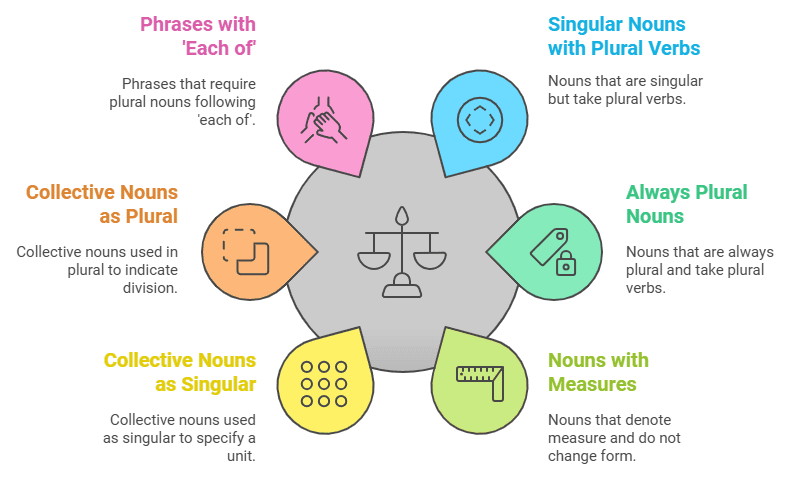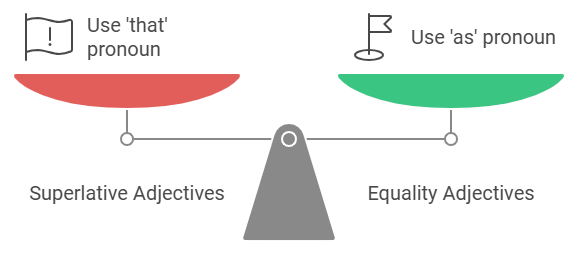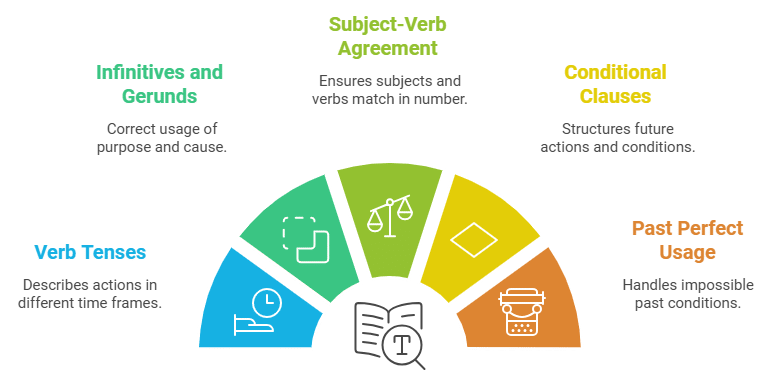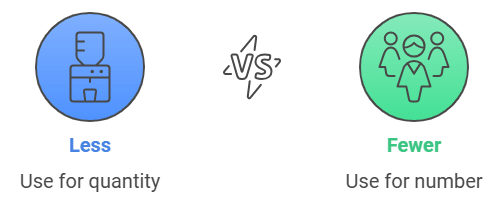Golden Rules of Spotting Errors | Verbal Ability & Reading Comprehension (VARC) - CAT PDF Download
What is Error Spotting?
Error Spotting is a grammar-based question type where you’re required to identify the part of a sentence that contains a grammatical mistake. The error could be related to nouns, pronouns, verbs, tenses, prepositions, or any other grammar rule. It’s like playing detective with words—spotting what’s wrong in a sentence and correcting it using your grammar skills!

General Format for Error Spotting Question
Question Statement:
- A sentence is provided with a potential grammatical or contextual error.
Options:
- Option A: A suggested correction for the sentence.
- Option B: Another suggested correction for the sentence.
- Option C: Yet another suggested correction for the sentence.
- Option D: Indication that no correction is required.
Common Errors & Rules to Spot Them
Following are the important rules to keep in mind while spotting for errors:
1. Parts of Speech
Notice that the different parts of speech: adjectives, adverbs, nouns, pronouns, conjunctions, interjections, and verbs are correctly used.
A. Nouns
- A noun is used to identify a place, person, or thing.
- It can be singular and plural but the verb used for them differs from singular to plural.

A.1 Certain nouns possess a singular form but still represent plurality and thus, take a plural verb when used in a sentence.
Example: Cattle, peasantry, people, clergy, police.
(i) The Police has come. (Incorrect)
The Police have come. (Correct)
A.2 Certain nouns always take the plural verb because their form is always plural.
Example: Scissors, trousers, spectacles, thanks, premises.
(i) The scissors is kept on the table. (Incorrect)
The scissors are kept on the table. (Correct)
(ii) Where is my trouser? (Incorrect)
Where are my trousers? (Correct)
A.3 When a number is followed by a noun denoting measure, length, money, number, or weight, the form of a noun does not change as long as they are followed by another noun or pronoun.
Example: Million, pair, meter, year, dozen, foot, head. Thus,
(i) This is a nine-meters cloth. (Incorrect)
This is a nine-meter cloth. (Correct)
A.4 Certain nouns, especially of the collective category, are used as singular when they specify a unit.
Example: Public, team, committee, government, audience, orchestra, company, jury.
(i) The public were unanimous in their opinion. (Incorrect)
The public was unanimous in its opinion. (Correct)
A.5 Certain nouns, especially of the collective category, are used in the plural when they specify a difference of opinion or class (i.e. not used as a single unit).
Example: Public, team, committee, government, audience, orchestra, company, jury.
(i) The jury was divided in its opinion. (Incorrect)
The jury were divided in their opinion. (Correct)
(ii) The resources was divided based on their expertise. (Incorrect)
The resources were divided based on their expertise. (Correct)
A.6 Sentences with words ‘each of’, ‘one of’, and ‘none of’ is always followed by a plural form of the noun.
Example:
(i) She is one of the less important people in the office. (Incorrect)
She is one of the least important people in the office. (Correct)
(ii) Each of the player performed well in the match. (Incorrect)
Each of the players performed well in the match. (Correct)
(iii) None of the student scored above 90% in the boards. (Incorrect)
None of the students scored above 90% in the boards. (Correct)
B. Pronouns
A pronoun is a word that refers to the noun in the sentence in case of possession.
B.1. If the pronoun ‘one’ is used, it must be maintained throughout the sentence.
Example:
(i) One must respect his elders. (Incorrect)
One must respect one’s elders. (Correct)
(ii) One must finish his task on time. (Incorrect)
One must finish one’s task on time. (Correct)
B.2. The word ‘whose’ is used for living people and ‘which’ is used for non-living things or ideas.
Example:
(i) Whose box is kept on the table? (Incorrect)
Which box is kept on the table? (Correct)
(ii) Which photograph is lying here? (Incorrect)
Whose photograph is living there? (Correct)
B.3. A pronoun after ‘like’, ‘unlike’, and ‘let’ takes an objective case.
Example:
(i) You will never find a woman like she. (Incorrect)
You will never find a woman like her. (Correct)
(ii) Let I do it. (Incorrect)
Let me do it. (Correct)
B.4 The relative pronoun ‘that’ is used instead of ‘who’ or ‘which’ after adjectives in the superlative degree.
Example:
(i) This is the best which she could do. (Incorrect)
This is the best that she could do. (Correct)
Mr. Budhrani, (1) / my friend and professor, (2) / is known for (3) / their good behaviour. (4) / No Error (5)
C. Adjectives
An adjective is a word that represents the specialty, merits, demerits, quality, and fault of a person, place, or thing.
C.1 Instead of ‘who’ or ‘which’, the relative pronoun ‘that’ is used after adjectives in the superlative degree.
Example:
(i) He is the same guy who picked my pocket yesterday. (Incorrect)
He is the same guy that picked my pocket yesterday. (Correct)
C.2 To show equality ‘as’ is used both before and after the adjective.
Example:
(i) I can run as fast, if not faster than you. (Incorrect)
I can run as fast as, if not faster than you. (Correct)
Everybody knows that (1) / Sonu Nigam is (2) / the most unique singer (3) / of this industry.(4) / No Error (5)
D. Verb
A verb is an action or state of being in a sentence. Verbs can be expressed in different tenses, depending on when the action is being performed.
Example: Jennifer walked to the store.
In this sentence, walked is the verb that shows action. It happened in the past, so it is a past-tense verb.

D.1 If the verb indicates a purpose, an infinitive must be used and if the verb indicates a cause, a gerund must be used.
Example:
(i) He went to the mall for watching a movie. (Incorrect)
He went to the mall to watch a movie. (Correct)
D.2
As 'as' is not used with verbs like 'appointed,' 'elected,' 'considered,' or 'called' when referring to a title or role. However, 'as' is used with the word 'regard
Example:
(i) He was elected as Secretary of the organization. (Incorrect)
He was elected Secretary of the organization. (Correct)
D.3 An infinitive verb should never be split.
Example:
(i) I request you to kindly tell me. (Incorrect)
I request you kindly to tell me. (Correct)
D.4 Even though ‘More than one’ indicates a plural sense, it agrees with a singular noun and takes a singular verb.
Example:
(i) More than one students completed their project. (Incorrect)
More than one student completed his project. (Correct)
D.5 Use Present Continuous tense rather than simple present tense, when the recurring action is problematic.
Example:
(i) She always hits me without any reason. (Incorrect)
She is always hitting me without any reason. (Correct)
D.6 If, in a sentence, two action clauses are to take place in the future, use simple present tense for the conditional clause and simple future tense for the other clause.
Example:
(i) The moment she will enter the room, we will start singing the birthday song. (Incorrect)
The moment she enters the room we will start singing the birthday song. (Correct)
D.7 For impossible past conditions, use past perfect and for its likely results use Would+Have+ 3rd form of Verb. Past perfect is used for impossible past conditions.
Example:
(i) If Jacob would have called me. I would have picked him up from the airport. (Incorrect)
If Jacob had called me, I would have picked him up from the airport. (Correct)
E. Adverbs
An adverb is a word that modifies the meaning of an adjective or verb. These words include less and fewer. ‘Fewer’ is used for denoting numbers while ‘Less’ is used for denoting quantity and some adverbs such as little, a little, and the little, are used in different places 
E.1 ‘Less’ is used to denote quantity, while ‘fewer’ is used to denote number.
Example:
(i) No less than twenty people were present. (Incorrect)
No fewer than twenty people were present. (Correct)
E.2 Adverbs should not be confused with adjectives. An adjective describes the characteristics of the subject, while an adverb describes the action of the verb.
Example:
(i) The horse looked beautifully. (Incorrect)
The horse looked beautiful. (Correct)
2. Subject-Verb Agreement
The subject should agree with the verb. For a singular subject, we use a singular verb and for a plural subject, we use a plural verb.
Example: A number of colorful glass vases was displayed in the store window. (Incorrect)
A number of colorful glass vases were displayed in the store window. (Correct)
3. Parallelism
The different words in the sentence, performing the same function should be in the same format.
Example:
All students should learn word processing, accounting, and how to program computers. (Incorrect)
All students should learn word processing, accounting, and computer programming. (Correct)
4. Modifiers
A modifier is any word or phrase which modifies the subject. The modifier has to be placed next to the subject it modifies.
Example: Covered in mud, Mark helped the puppy. (Incorrect)
Covered in mud, the puppy was helped by Mark. (Correct)
She wore(1) / a bicycle helmet (2) / on her head (3) / that was too large.(4) / No Error (5)
5. Diction
Use the correct words in the correct place.
Example: See you latter. (Incorrect)
See you later. (Correct)
6. Redundancy
Avoid needless repetition of the same idea.
Example: We will return back on Monday. (Incorrect)
We will return on Monday. (Correct)
7. Other important rules for spotting errors
- Only ‘than’ should be used after ‘no other’.
Example:(i) I like no other movie, but Titanic. (Incorrect)
I like no other movie than Titanic. (Correct) - After the word ‘Know’, ‘how’; ‘what’ or ‘when’ should be used before using the infinitive.
Example: (i) I know to speak English. (Incorrect)
I know how to speak English. (Correct) - Question tags are always the opposite of the sentence which means that if the sentence is positive, the question tag is negative and vice versa.
Example: (i) You were dancing, were you? (Incorrect)
You were dancing, weren’t you? (Correct) - ‘Scarcely’ and ‘hardly’ are followed by ‘when’ and not by ‘than’.
Example: (i) Hardly had the teacher left the room than the pupils started enjoying. (Incorrect)
Hardly had the teacher left the room when the pupils started enjoying. (Correct)
(ii) Scarcely had he arrived than he had to leave again. (Incorrect)
Scarcely had he arrived when he had to leave again. (Correct)
- ‘Though’ is followed by ‘yet’ and not by ‘but’.
Example: (i) Though he is poor but he is honest. (Incorrect)
Though he is poor, yet he is honest. (Correct) - ‘Lest’ must be followed by ‘should’ or' nothing at all and ‘Such’ must be followed by ‘as’.
Example: (i) Work hard lest you will fail. (Incorrect)
Work hard lest you should fail. (Correct)
Work hard lest you fail. (Correct)
(ii) He is such a writer that everybody should read his books. (Incorrect)
He is such a writer as everybody should read his books. (Correct) - ‘Unless’ expresses a condition and is always used in the negative sense. Thus ‘not’ is never used with ‘unless’.
Example: (i) Unless you do not work hard, you will not excel in the examination. (Incorrect)
Unless you work hard, you will not excel in the examination. (Correct) - ‘When’ denotes a general sense and ‘while’ implies a time duration of doing something.
Example: (i)When learning how to sing, the technique is of utmost importance. (Incorrect)
While learning how to sing, the technique is of utmost importance. (Correct) - The preposition “off ” denotes “separation”, “at a distance from” or “far from” whereas the preposition “of” denotes cause, origin, quality, and possession.
Example:
(i) Separation
He put of his coat. (Incorrect)
He put off his coat. (Correct)
(ii) Cause
He died off cancer. (Incorrect)
He died of cancer. (Correct) - 'Between' is used for only two things or persons while among is used for more than two.
Example: (i) You have to choose among tea and coffee. (Incorrect)
You have to choose between tea and coffee. (Correct) - 'During' is used when we are talking about the time within which something happens. For is used when we are talking about how long something lasts.
Example: (i) There were few incidents of irregularity for the Emergency years. (Incorrect)
There were few incidents of irregularity during the Emergency years. (Correct) - Use of ‘not only’ and ‘but also’ examine the sentences given below.
Example: (i)He not only comes for swimming but also for coaching the learners. (Incorrect)
He comes not only for swimming but also for coaching the learners. (correct) - 'Neither' is followed by nor, not by.
Example: (i) The phone neither went dead or worked properly. (Incorrect)
The phone neither went dead nor worked properly. (Correct) - The articles 'a/an' or 'the' are not used with words such as (kind of, sort of, type of, etc)
Example:
(i) What type of the books you like to read? (Incorrect)
What type of books do you like to read? (Correct)
(ii) What sort of an insect is that? (Incorrect)
What sort of insect is that? (Correct)
|
163 videos|797 docs|126 tests
|
FAQs on Golden Rules of Spotting Errors - Verbal Ability & Reading Comprehension (VARC) - CAT
| 1. What is the purpose of error spotting in English grammar? |  |
| 2. What are some common errors related to parts of speech? |  |
| 3. How can I improve my subject-verb agreement skills? |  |
| 4. What are some tips for effectively spotting errors in sentences? |  |
| 5. Are there any resources available for practicing error spotting? |  |

















